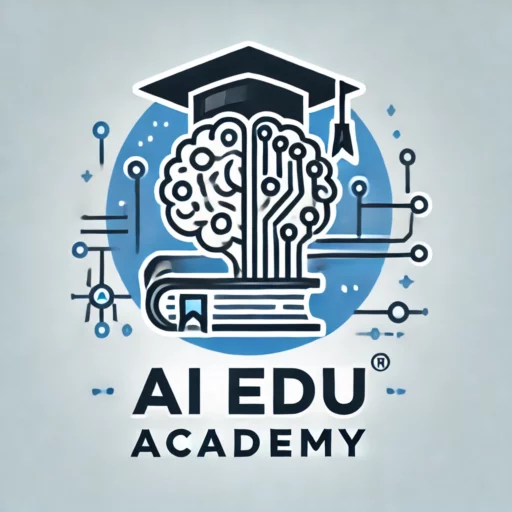Artificial Intelligence is transforming industries and revolutionizing how we live, work, and learn. But before you jump headfirst into an AI course, it’s essential to pause and ask the right questions. Choosing the wrong course can lead to frustration, wasted time, and missed opportunities. This guide walks you through 7 critical questions to consider before starting your AI education journey.
Why AI Courses Are More Popular Than Ever
AI isn’t just a buzzword anymore—it’s a career maker. From tech giants to small startups, everyone’s integrating AI into their workflows. Naturally, AI education is booming. Platforms like AI Edu Academy make it easier than ever to learn AI from scratch or level up your skills.
But not all courses are created equal. Let’s explore how to choose wisely.
1. What’s Your Ultimate Goal with AI?
Before signing up for any course, ask yourself: Why do I want to learn AI?
Define Your AI Journey
Are you aiming to become a machine learning engineer? Or are you a teacher wanting to integrate AI tools into your classroom? Your goal will shape everything—from the depth of the course to the type of content you need.
Career vs Curiosity
If you’re learning out of curiosity, an introductory course will do. But if you’re planning to launch a career in AI, consider specialized paths available at Career in AI.
2. Do You Have the Right Prerequisites?
Math and Programming Basics
AI is rooted in mathematics and programming. You don’t need to be a PhD, but a solid grasp of linear algebra, calculus, Python, and statistics helps immensely.
Helpful AI Tools to Get Started
Begin with basic resources like AI Learning Basics, which break down complex topics into beginner-friendly modules.
Also explore:
3. Which AI Course Format Suits You Best?
Self-paced vs Instructor-led
Self-paced courses offer flexibility, but some learners prefer the structure of instructor-led programs. Consider your learning style.
Online vs Offline Learning
In today’s world, online courses dominate. You can find many reputable options through Online AI Courses.
4. What’s the Reputation of the Course Provider?
Check for Accreditation and Reviews
A shiny website doesn’t mean a course is valuable. Look for institutions with strong credentials and student testimonials.
Look for Real-World Projects
Hands-on projects are crucial. Platforms like AI Courses & Certifications offer programs with portfolio-worthy projects.
5. Is the Course Up-to-Date with Industry Trends?
AI Is Rapidly Evolving
AI trends shift fast—what’s hot today might be outdated tomorrow. Courses should be updated regularly.
Stay Informed with Current AI Trends
Refer to resources like AI in Education Trends to stay ahead of the curve.

6. Will the Course Support Career Growth?
Job-Ready Skills vs Academic Learning
Some courses focus on theory, while others build job-ready skills. Ask yourself: What does the job market expect from me?
AI Specializations and Career Pathways
Specializations like NLP, computer vision, or robotics offer niche career paths. Learn more at Career in AI.
Related tags to explore:
7. What AI Tools and Platforms Will You Learn?
Hands-on Experience Is a Must
Knowing how AI works is one thing; using it is another. You should gain real experience with AI platforms and libraries.
Popular AI Software Covered
Check that your course covers tools like TensorFlow, PyTorch, Scikit-learn, or even no-code AI platforms.
Explore these resources:
Conclusion
Jumping into the world of artificial intelligence is exciting, but preparation is key. By asking yourself these seven questions, you’ll avoid common pitfalls and set yourself up for a rewarding AI learning experience. Whether you’re looking for a career pivot, skill boost, or just want to understand what AI can do, there’s a course out there for you—just make sure it’s the right one.
For more helpful guidance, visit AI Edu Academy and explore tags like AI in EdTech, AI Development, and Online Learning.
FAQs
1. Can I learn AI without any programming experience?
Yes, but it helps to start with beginner-friendly platforms like AI Learning Basics to build foundational knowledge.
2. Are free AI courses worth it?
Some are, especially for beginners. But for serious learners, investing in a comprehensive, structured course is usually better.
3. How long does it take to complete an AI course?
Anywhere from a few weeks to several months, depending on the depth and format of the course.
4. Which AI certification holds the most value?
Look for certifications from reputable institutions, like those found at AI Courses & Certifications.
5. What is the best programming language for AI?
Python is the most commonly used language in AI and has a rich ecosystem of libraries.
6. Can AI courses help me switch careers?
Absolutely. Many people use AI education to transition into tech roles—check out Career in AI for ideas.
7. Do AI courses cover ethical implications of AI?
Good ones do! Ethical AI is becoming increasingly important and is often included in advanced curricula.
